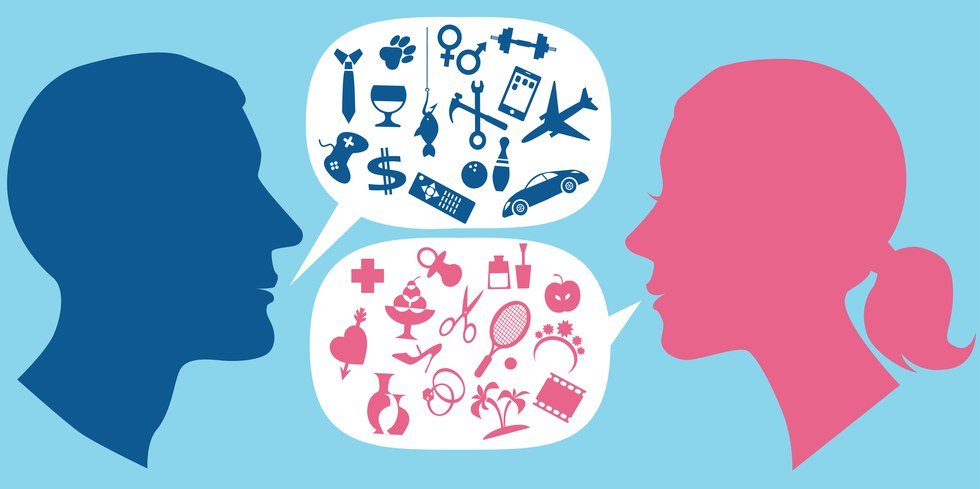Can You Be Friends with a Narcissist? Find Out Now
Friendships are typically built on mutual respect, empathy, and emotional connection.
But what happens when a friendship involves a narcissist? Traits of Narcissistic personality disorders can significantly impact relationships, making it challenging to sustain healthy and fulfilling connections.
This article explores the question: Can you be friends with a narcissist? We will delve into the complexities of maintaining such a friendship, the potential risks, and ways to protect your emotional well-being if you decide to stay in the relationship.
So, can you be friends with a narcissist?
While possible to be friends with a narcissist, it's challenging due to their self-centered nature and lack of empathy. Maintaining such a friendship requires strong boundaries and realistic expectations.
Key Takeaways:
Narcissists exhibit traits like grandiosity, lack of empathy, and manipulative behavior.
Friendships with narcissists are often challenging and one-sided.
Setting boundaries and managing expectations are crucial in these relationships.
It's important to prioritize your emotional well-being and recognize when to end the friendship.
Understanding Narcissism: What Defines a Narcissist?
Before determining whether a friendship with a narcissist is possible, it’s crucial to understand what narcissism entails.
Narcissistic Personality Disorder (NPD) is a mental health condition characterized by a pervasive sense of grandiosity, a need for excessive admiration, a lack of empathy, and manipulative behaviors.
People with narcissistic tendencies often put their own needs and desires above others, which can lead to difficult and unbalanced relationships.
Some common traits of narcissists include:
A strong and false sense of entitlement.
An inflated sense of self-importance.
Difficulty handling criticism or feedback.
Exploitative behaviors for personal gain.
A lack of genuine emotional connection or empathy.
Given these traits, the dynamics of a narcissistic friendship can feel one-sided and draining, raising the question of whether it’s possible to maintain a meaningful connection with such a person.
The Challenges of Being Friends with a Narcissist
Having a narcissistic friend can present numerous challenges. Here are a few potential issues you may encounter in this type of relationship:
1. Emotional Manipulation
Narcissists often use manipulation tactics to maintain control of their relationships.
In a friendship, this might manifest as guilt-tripping, gaslighting, or playing the victim to gain sympathy.
Over time, you may feel emotionally drained or manipulated into prioritizing their needs over your own.
2. One-Sided Conversations
Friendships typically involve mutual sharing and listening.
However, narcissists are known for dominating conversations, steering the focus back to themselves, and disregarding your thoughts and feelings.
You may find that your emotional needs are unmet in the friendship, as the narcissist expects constant attention and admiration.
3. Lack of Empathy
Empathy is the cornerstone of any meaningful and healthy relationships.
Unfortunately, narcissists often lack the ability to genuinely understand or care about the feelings of others.
This can make it difficult to have a balanced friendship, as the narcissist may not offer the emotional support or validation you need.
4. Constant Drama
Narcissists tend to thrive on chaos and drama. If you have a narcissist friend, you may find yourself frequently involved in conflicts or caught up in their personal dramas.
This can be exhausting and emotionally draining, making it hard to maintain peace and stability in the relationship.
5. Manipulating for Personal Gain
Narcissists are known for using others to fulfill their own needs.
In a friendship, this might involve taking advantage of your kindness, generosity, or resources without reciprocating.
The relationship may feel transactional, with the narcissist only valuing the friendship for what they can gain from you.
Can a Friendship with a Narcissist Be Healthy?
Given the challenges outlined above, it’s natural to wonder if a friendship with a narcissist can ever be healthy.
The answer largely depends on the severity of the narcissistic traits and your own boundaries.
While some narcissists may possess self-awareness and make an effort to improve their behavior, many will not.
1. Setting Boundaries
One key to maintaining any form of relationship with a narcissist is setting clear and healthy boundaries.
Boundaries help protect your emotional well-being and prevent the narcissist from overstepping or exploiting your kindness.
This may involve limiting the amount of time you spend with them, refusing to engage in manipulative behaviors, or standing up for yourself when necessary.
2. Managing Expectations
It’s important to adjust your expectations if you decide to remain friends with a narcissist.
Recognize that this friendship may not offer the same emotional reciprocity or support as others.
By accepting the limitations of the relationship, you may be better equipped to manage the narcissist’s behavior without becoming emotionally overwhelmed.
3. Maintaining Emotional Detachment
With narcissistic friends, it’s essential to maintain emotional detachment to avoid getting too entangled in their drama or manipulation.
This might involve keeping the friendship surface-level or avoiding emotionally charged conversations that could lead to conflict.
By creating emotional distance, you can protect yourself from the narcissist’s attempts to control or dominate the narcissistic relationship.
When to Walk Away from the Friendship
Despite your best efforts, there may come a point when the friendship is no longer sustainable.
Here are some signs that it might be time to walk away from a friendship with a narcissist:
You feel constantly drained
If the friendship leaves you feeling emotionally exhausted, anxious, or depleted, it may be time to reconsider the relationship.
You’re being manipulated or controlled
If the narcissist’s manipulation tactics are impacting your mental health or self-esteem, it’s essential to prioritize your well-being.
Your boundaries are being violated
If the narcissist continually disregards your boundaries or refuses to respect your needs, the relationship is likely unhealthy.
There’s no mutual respect
Friendships should be built on mutual respect and understanding. If the narcissist consistently disrespects you or makes you feel inferior, it may be time to cut ties.
Ending a friendship with a narcissist can be difficult, especially if they react with anger or attempt to manipulate you into staying.
However, prioritizing your own mental health and emotional well-being is crucial.
Strategies for Ending the Friendship
If you decide to end the friendship, it’s essential to approach the situation carefully to avoid unnecessary conflict. Here are some strategies for parting ways with a narcissist:
Be Direct but Calm
Narcissists are unlikely to respond well to confrontation, so it’s important to remain calm and composed when ending the friendship.
Be direct about your decision, but avoid getting drawn into arguments or emotional manipulation.
Minimize Contact
After ending the friendship, it may be necessary to minimize contact or cut ties altogether, especially if the narcissist tries to guilt-trip or manipulate you into returning.
Consider limiting interactions through social media or mutual friends.
Seek Support
Ending a relationship with a narcissist can be emotionally challenging.
Seek support from friends, family, or a therapist to help you process your feelings and move forward.
Frequently Asked Questions:
1. Is it possible to have a healthy friendship with a narcissist?
While it’s possible to maintain a friendship with a narcissist, it may not resemble the typical healthy friendship you might expect.
Narcissists often lack empathy, engage in manipulative behavior, and struggle to reciprocate emotional support.
To sustain the relationship, you will need to set firm boundaries, manage your expectations, and protect your emotional well-being.
However, the friendship is likely to be one-sided and emotionally draining over time.
2. How can I protect myself emotionally in a friendship with a narcissist?
To protect yourself emotionally in a friendship with a narcissist, it’s crucial to set clear boundaries and maintain a level of emotional detachment.
Avoid becoming too entangled in their drama or manipulative tactics, and don’t hesitate to prioritize your own needs.
Keep interactions surface-level, and try to limit the amount of time and energy you invest in the friendship.
Seek support from other friends or a therapist to process any emotional strain caused by the relationship.
3. When should I consider ending a friendship with a narcissist?
You should consider ending a friendship with a narcissist if the relationship becomes emotionally exhausting, manipulative, or harmful to your well-being.
If the narcissist continually violates your boundaries, disrespects your needs, or leaves you feeling anxious or depleted, it’s likely a sign that the friendship is no longer healthy.
It’s important to recognize when the friendship is doing more harm than good and prioritize your mental health by distancing yourself from the narcissist.
Conclusion:
Ultimately, whether or not you can be friends with a narcissist depends on your ability to set boundaries, manage expectations, and protect your emotional well-being.
While it is possible to maintain a friendship with someone who has narcissistic traits, the relationship is unlikely to be as fulfilling or supportive as a typical friendship.
If the narcissist’s behavior becomes too toxic or harmful, it’s important to recognize when it’s time to walk away.
Protecting yourself from emotional manipulation with self-care and maintaining your own sense of self-worth should always be your top priority in any relationship, especially one with a narcissist.



